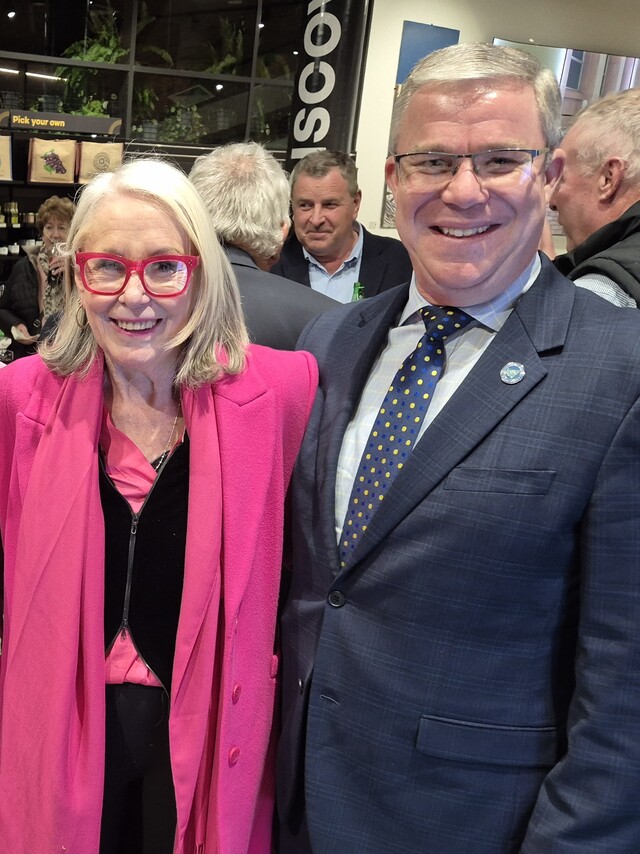The Good Oil by Rod Brown *
Reserve Bank Governor, Ian Macfarlane, has warned Australians that the days of booming economic growth and low interest rates are over. He told the House of Representatives Economics Committee in mid February that Australians need to brace for a double whammy of lower growth and higher interest rates. Most interestingly, the Reserve Bank has put its oar in about the lack of investment in infrastructure, based on the capacity constraint argument with the Queensland port and NSW rail systems as examples.
The Reserve Bank has been running this argument for a while. But Macfarlane’s admission is remarkable because it reinforces claims that the Howard Government has fostered the consumer binge, and has pandered to the short termers, such as the HIA, MBA and the banks, at the expense of the manufacturing and infrastructure groups.
While Transport Minister Anderson can argue that the States must cop the blame for the infrastructure inadequacies, MacFarlane’s comments have made it a national issue. The problem is that the Fed’s infrastructure showpiece, Auslink, is way underfunded due to Treasury/Finance parsimony. Given that Local Government usually cops the backwash of infrastructure inadequacies, it is worth watching Opposition spokesman, Lindsay Tanner, in coming months.
Like your development agency reviewed?
Our network, Clusters Asia Pacific Inc., is a member of the OECD’s Local Economic and Employment Development program (LEED). It identifies, analyses, and disseminates innovative ideas on entrepreneurship, local development and social economy (see www.oecd.org/els/LEED). LEED estimates that there are 1,000 development agencies in Europe and 2,000 in North America.
I guess there are probably 100 in Australia, ranging from reasonably well resourced bodies in Western Australia and Queensland, through to localised groups working within the confines of a single Council.
LEED suggests there are very few cities and regions that understand how to review and reorganise their development agencies, resulting in a long, slow creep towards an uncertain future. It is therefore initiating a series of reviews, using international experts and LEED partner organisations. The benefits of a LEED review include the use of the OECD’s name and influence.
A report will be prepared containing an assessment of the issues, policy recommendations and best practice lessons. Local organisations will validate and revise the report through a formal process. The sorts of issues to be addressed include the following:
- monitoring the city and regional economy
- strategic planning for LEED
- infrastructure advocacy
- land and property redevelopment
- workforce, skills, employment
- sector/cluster strategies
- fund management and direct investment
- investment facilitation
- major project management
- promotion and marketing
- capacity building and technical assistance
- addressing market weaknesses and failures
- dead assets.
Please contact me for more information.
Stable doors and bolting horses
Yorkshire Forward, a real REDO, is investing £3.5m in a project to better understand the global pressures leading businesses in the region are under and to assist them with their long term plans to grow, invest and create jobs in the region.
UK businesses with more than 250 employees represent just four per cent of all firms, but in Yorkshire they account for half the region’s GDP.
Over the last two years, decisions by just six companies to move operations away from the region resulted in more than 3,200 job losses.
A key account management team will work with 600 top companies to improve the flow of information and help reduce the likelihood of those businesses relocating elsewhere. It will be responsible for communicating the strategic needs of the companies to partner organisations, including Councils.
They explained their strategy as, “We want to work with them to make sure that the long term strategic decisions made here by us and other authorities recognise their aims and aspirations…in some cases in the past, if we had been more aware of the specific problems that led companies to make their decisions, such as skills gaps or productivity constraints, we could have done something about it.”
These key account managers will identify problems early. It is about closing the stable door before the horse has even thought about bolting.
The overall aim of the project is to safeguard 1,500 jobs and create 500 more, while attracting about £40m of private sector investment into the region. The key businesses will be identified by factors including employment, growth, turnover, profitability and how they work with local and regional suppliers.
The Yorkshire initiative is commendable. If you think about it, they are regularising an activity that every local Council and development agency should be doing, whatever the size of their companies.
Lobbying government
Many Councils make heavy weather of accessing government grants. My company, and our wider network, is working with Councils and companies to improve their success rate.
Here are some tips to improve your chances. They are in approximate chronological order:
- Invest some time in understanding of government policy settings and priorities.
- Understand where the ‘public good’ argument stops – the current Senate enquiry into regional grants will shed some light on this.
- Work collaboratively with other Councils to increase your muscle.
- Do the hard yards in terms of industry, project or regional analysis to underpin your argument.
- Don’t forget face to face engagement with officials – written correspondence is important, but it must be matched with meetings and regular follow ups.
- Put money on the table. This includes knowing how to develop funding cocktails.
- Identify and use champions, particularly from the private sector.
You can pick up these skills quite quickly with a bit of coaching and involvement in real life projects We are thinking of running some seminars for councils. Let us know if you are interested.
* Rod Brown’s Canberra based consultancy group, Australian Project Developments Pty Ltd, specialises in industry/regional development and government liaison. For further information telephone (02) 6231 7261 or email apd@orac.net.au







